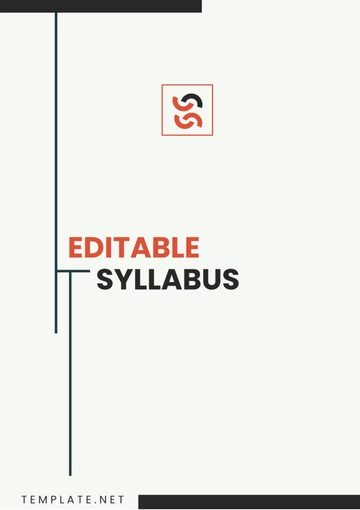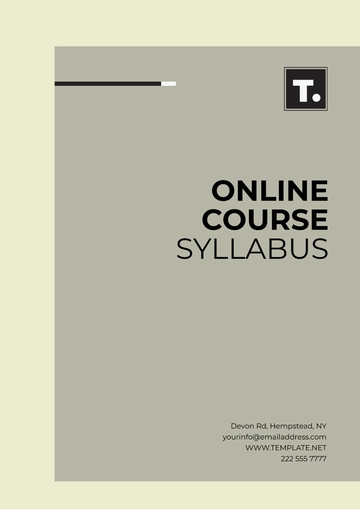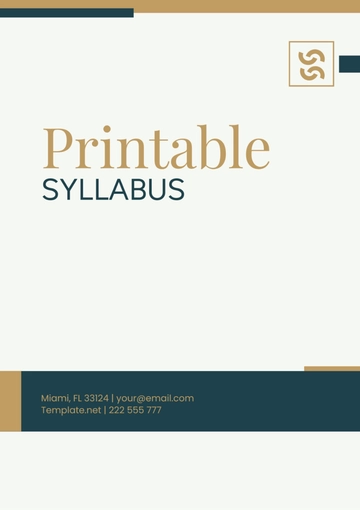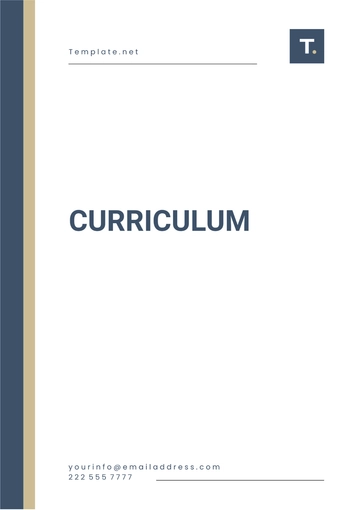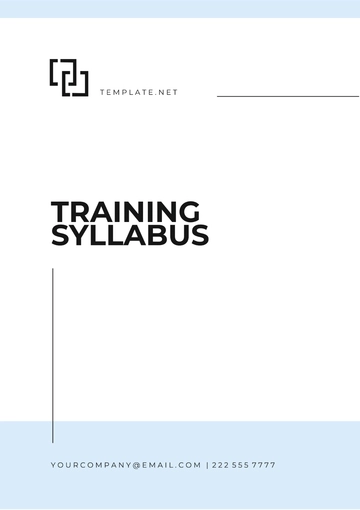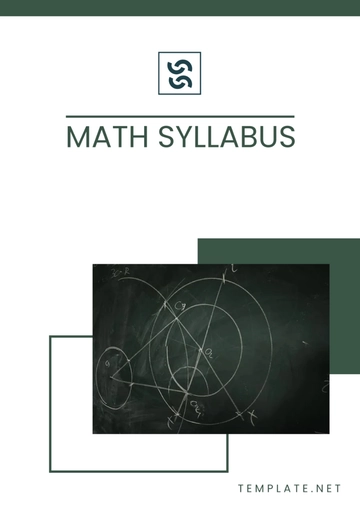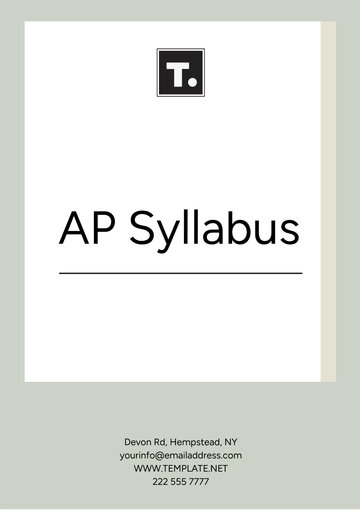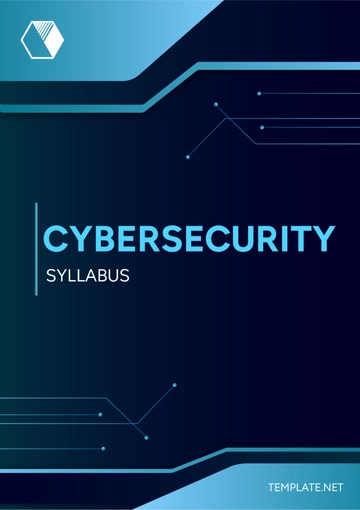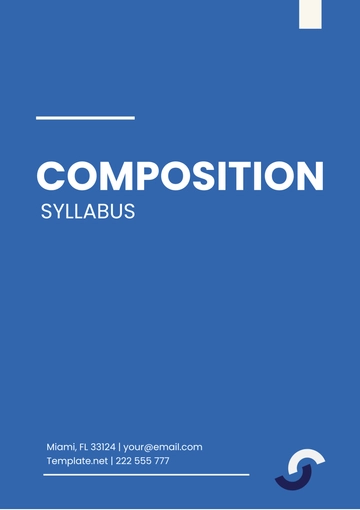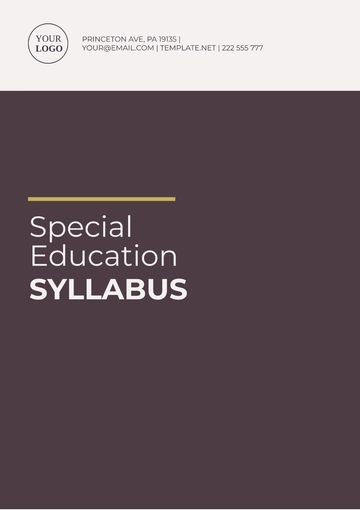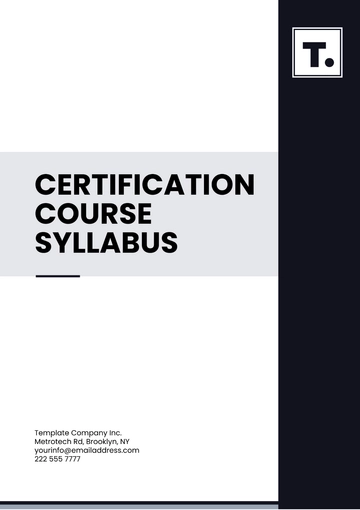Free Seminar Course Syllabus
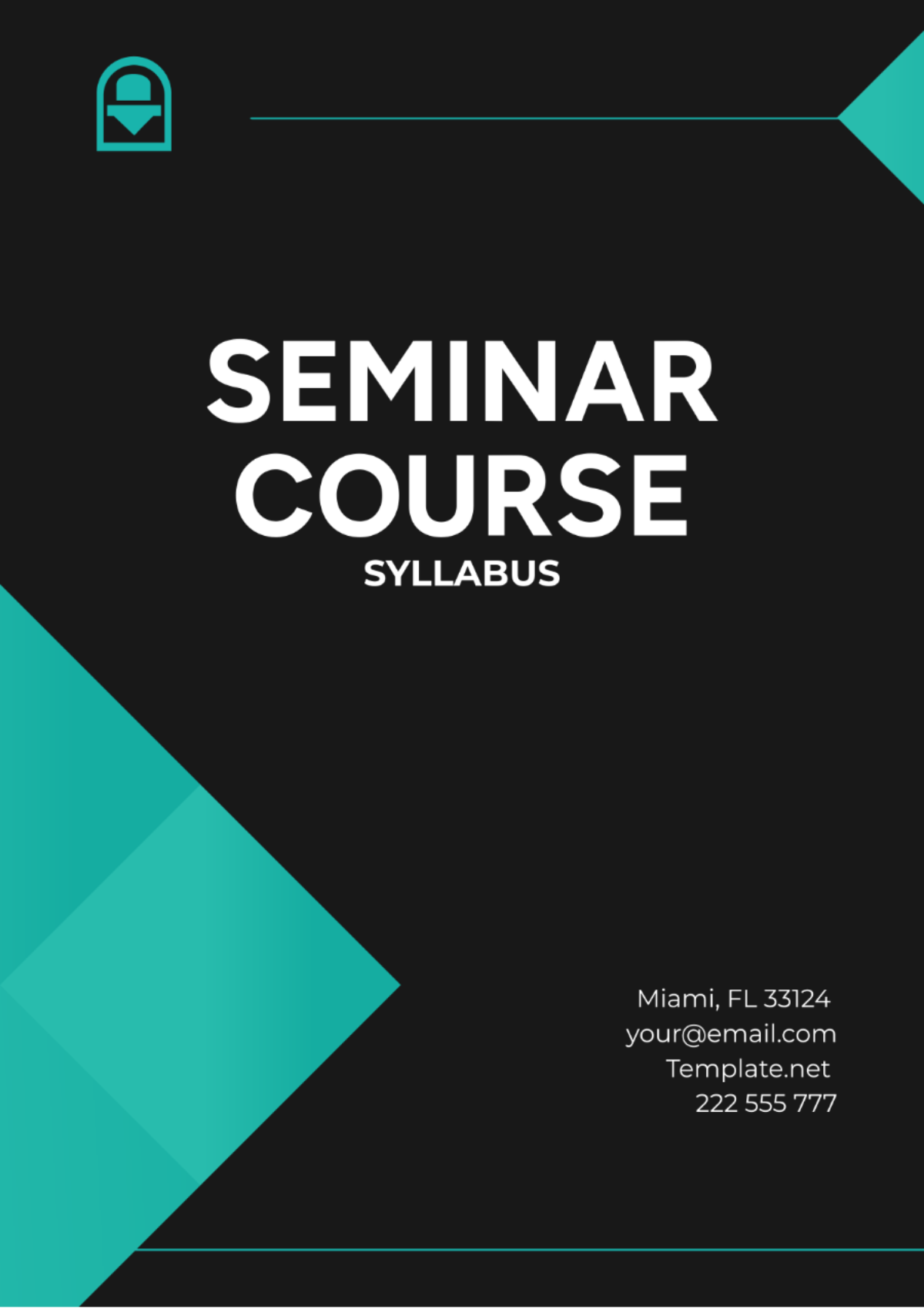
Environmental Science Course
Course Title | [COURSE TITLE] |
Course Code | [COURSE CODE] |
Instructor Name | [YOUR NAME] |
[YOUR EMAIL] | |
Class Time | [CLASS TIME] |
Class Duration | [DATE] - [DATE] |
1. Course Title and Description
This course, 'Foundations of Environmental Science', is an advanced level seminar that equips students with in-depth knowledge on key ecological concepts and their practical applications. The goal is to motivate, inspire and equip the students in playing a pivotal role in tackling environmental challenges by imbuing them with the latest knowledge and practices.
2. Instructor Information
Instructor: [YOUR NAME]
Contact: [YOUR EMAIL]
Organization: [YOUR COMPANY NAME]
3. Learning Objectives
Install an in-depth understanding of the fundamental concepts in environmental science.
Develop analytical skills to evaluate the impacts of human activities on the environment.
Promote the concept of sustainable development and the role that environmental science plays in it.
To relate theoretical knowledge with real-world challenges while deriving relevant solutions.
Explore the latest trends and technologies evolving in environmental science.
4. Course Schedule
Week | Topics | Activities |
|---|---|---|
1-2 | Introduction to Environmental Science | Lectures, Group Discussions |
3-4 | Ecosystem Dynamics and Biodiversity | Case Studies, Field Work |
5-6 | Environmental Policies and Legislation | Seminars, Guest Lectures |
5. Required Reading and Materials
Molles, M. C., Jr. (2009). Ecology: Concepts and Applications.
Smith, R. L., & Smith, T. M. (2009). Elements of Ecology.
Miller, G. T., Jr. (2007). Living in the Environment: Principles, Connections, and Solutions.
Environmental Science journals, magazines and articles.
Access to the internet for research and digital activities.
6. Assignments and Assessments
Class Participation: Regular and active participation in discussions and activities.
Seminar Presentation: Each student will present a seminar on a topic of their choice related to the course.
Field Work Report: A detailed report based on the fieldwork conducted.
Research Project: A comprehensive project involving in-depth research on an environmental issue.
Final Examination: A comprehensive test covering all course materials.
7. Course Policy
Regular and punctual attendance is expected and required for all activities.
All assignments and projects must be completed on-time. Late submissions will result in a grade penalty.
Students are expected to maintain academic honesty and integrity. Plagiarism will result in a failing grade and potential disciplinary action.
Students should maintain a respectful classroom environment that is conducive to everyone's learning.
Any change in the syllabus, course schedule or grading policy will be communicated promptly via class announcements and email notifications.
8. Grading Policy
Criteria | Percentage |
|---|---|
Class Participation | 10% |
Seminar Presentation | 20% |
Field Work Report | 20% |
Research Project | 30% |
Final Examination | 20% |
Total | 100% |
Disclaimer
The content that is currently being presented in this syllabus should be regarded as an initial guideline that is meant to provide direction for the course. This should not, however, be taken as rigid or fixed, as it's content is highly susceptible to changes as the course progresses. Any changes to the elements detailed in the syllabus, which include but are not limited to modifications or significant alterations, will be speedily and efficiently communicated to all participating students in the course to ensure everyone stays updated and in-the-know regarding these changes.
- 100% Customizable, free editor
- Access 1 Million+ Templates, photo’s & graphics
- Download or share as a template
- Click and replace photos, graphics, text, backgrounds
- Resize, crop, AI write & more
- Access advanced editor
Introducing the Seminar Course Syllabus Template from Template.net! This professionally crafted resource offers an editable and customizable format, ensuring seamless adaptation to your specific seminar needs. Harness the power of our Ai Editor Tool to effortlessly tailor content, making your syllabus creation process efficient and effective.

